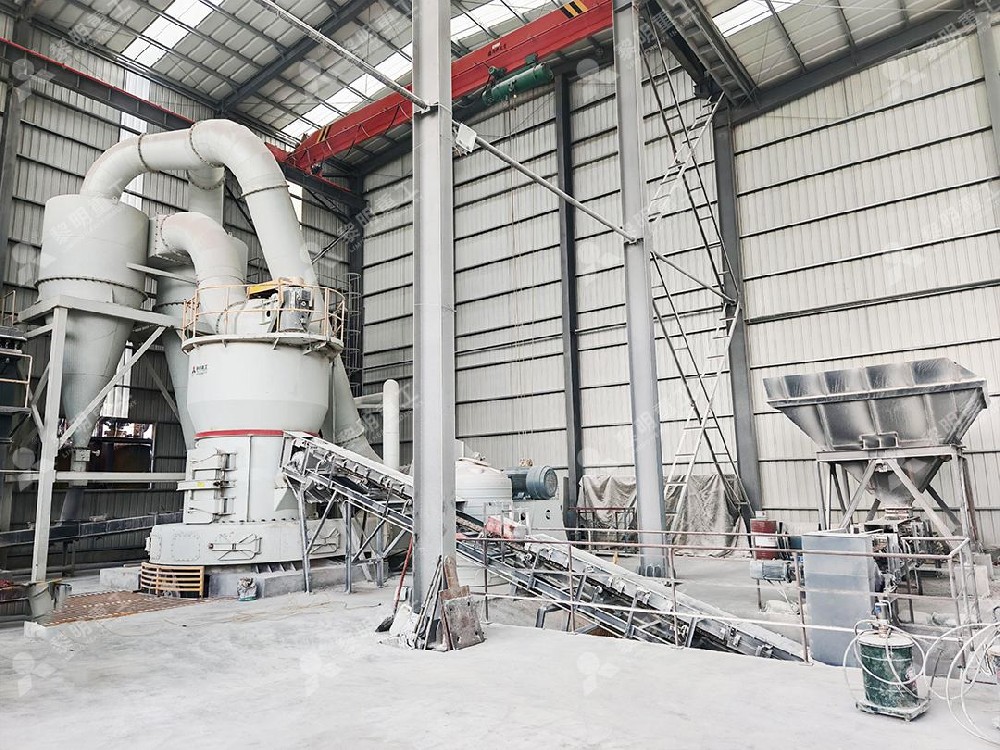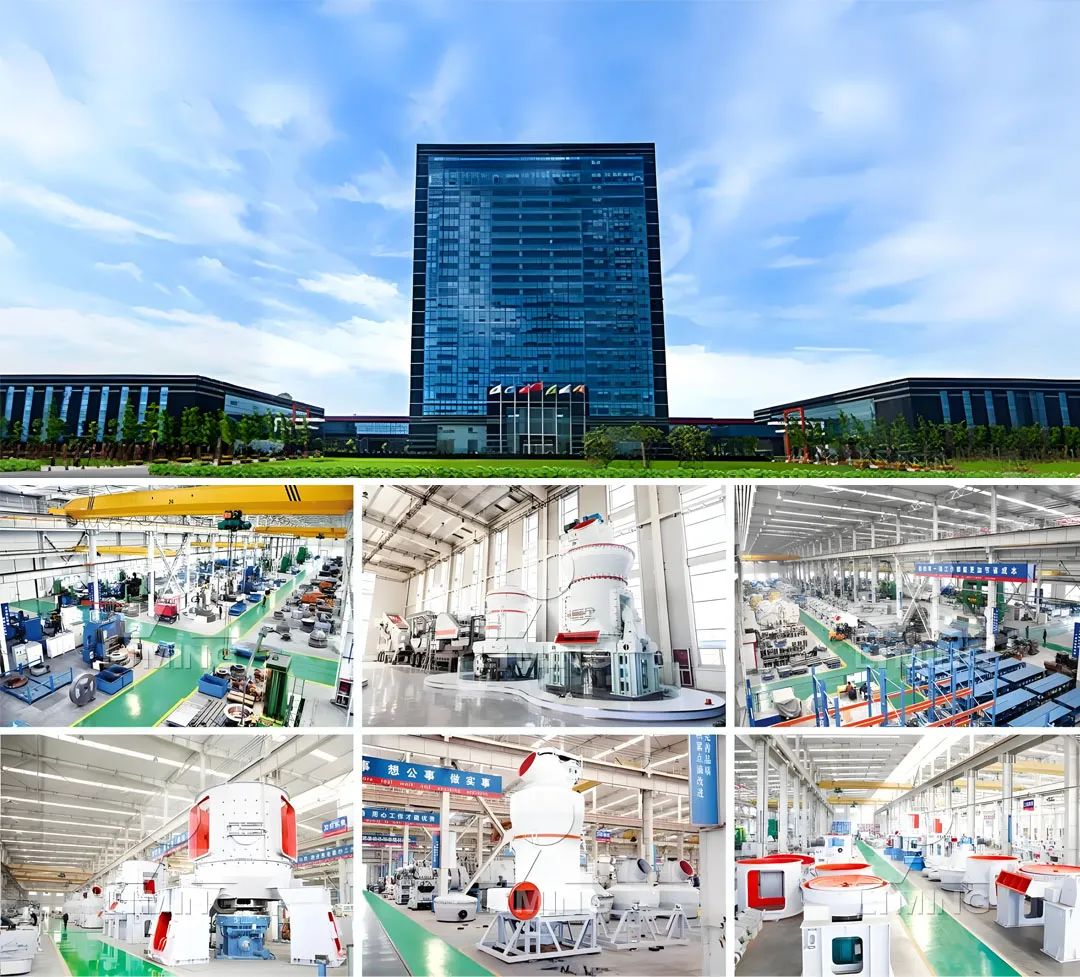Industry News
Dolomite grinding mill for glass and refractory materials in India – Online quote available for international buyers
2025-11-25 08:56:26
We are Liming Heavy Industry, a manufacturer of various types of industrial crushers, such as Raymond Mill, Trapezoidal Mill, Vertical Mill, Ultrafine Mill, Ball Mill, etc.
Our mills can process the following minerals:
limestone, quicklime, kaolin, talc, barite, bentonite, calcium carbonate, dolomite, coal, gypsum, clay, carbon black, slag, cement raw materials, cement clinker, etc.
If you need a mill to process stone or minerals into powder, please feel free to contact me (WhatsApp: +86 153 3380 7511). Thank you.
Dolomite is an essential industrial mineral used widely in the Indian glass and refractory materials industries. Known for its high magnesium and calcium content, dolomite enhances product durability, stability, and thermal resistance. As demand for high-performance glass and refractory materials grows in sectors such as construction, metallurgy, energy, and chemical production, selecting the right grinding equipment becomes a pivotal step in processing dolomite into fine, uniform powder.

For manufacturers and distributors supplying the Indian market, a reliable dolomite grinding mill ensures consistent quality, stable output, and long-term production efficiency. Understanding how these mills work—and choosing equipment with the right performance, capacity, and fineness—directly influences product competitiveness.
Importance of Dolomite Powder in Glass and Refractory Applications
In glass production, dolomite acts as a stabilizer and fluxing agent. Its magnesium oxide content improves glass elasticity and chemical resistance, while calcium oxide helps enhance hardness and clarity. Fine and evenly ground dolomite powder ensures smooth melting, reduced impurities, and better transparency of the final product.
In refractory materials, dolomite contributes to high-temperature strength. It provides key components for producing refractory bricks, furnace linings, casting materials, and insulation products widely used in the steel, cement, and non-ferrous metal industries across India. The stability and heat resistance of dolomite-based refractories depend on achieving the precise particle size during the grinding process.

Choosing the Right Dolomite Grinding Mill
Grinding dolomite into the required fineness—typically between 80 and 400 mesh for glass and refractory applications—requires equipment that delivers consistent performance under continuous operation. Several factors should guide equipment selection:
Particle size uniformity: Finer and consistent powder ensures stable melting and high-quality refractory formulation.
Capacity and output: Production lines in India often demand medium to large output to meet industry volume.
Energy efficiency: Reducing energy consumption lowers cost and increases competitiveness.
Maintenance and parts lifespan: High-wear components must withstand abrasive materials like dolomite.
Two equipment types are widely used for dolomite processing due to their high efficiency, stable operation, and adaptability to industrial production conditions.
_1761296107304.jpg)
Raymond Mill for Dolomite Powder Preparation
The Raymond mill is a popular choice for processing dolomite into fine powder for the glass and refractory industries. It provides excellent performance for medium-fineness powder production, typically from 80 to 325 mesh.
Key advantages include:
Smooth operation with reliable grinding stability
High screening efficiency and uniform particle size
Lower energy consumption compared to traditional mills
A compact layout suitable for both small and large processing plants
Raymond mills are especially suitable for manufacturers who need continuous, cost-effective dolomite grinding with steady output quality.
_1761361296294.jpg)
Vertical Mill for Large-Scale Dolomite Grinding
A vertical grinding mill offers higher capacity, stronger drying ability, and a more environmentally friendly operation. For Indian companies involved in large-scale glass production, metallurgical refractories, or high-volume material processing, vertical mills deliver superior performance.
Core benefits include:
Large output for handling high-volume dolomite supply
Adjustable fineness range suitable for multiple industrial uses
Efficient drying of raw materials, especially helpful in cold or humid climates
Lower overall power consumption and dust emissions
This type of mill integrates grinding, drying, classification, and conveying, making it ideal for modern automated plants.
_1761355927036.jpg)
Why Choose Liming Heavy Industry
For international buyers looking to supply or operate dolomite grinding production in India, equipment from Liming Heavy Industry provides long-term stability and high-quality results. The company offers advanced Raymond mills and vertical mills designed specifically for mineral grinding applications. These machines feature durable components, intelligent control systems, and optimized designs that ensure consistent powder quality for both glass and refractory applications.
Liming Heavy Industry supports global buyers with professional technical guidance, international logistics arrangements, and fast online quotation services. Whether you manage a glass factory, a refractory materials plant, or a mineral processing operation, the equipment solutions deliver the performance needed for competitive industrial production in India.

FAQ
1. What fineness is required for dolomite used in glass and refractory materials?
Most applications require 80–400 mesh, depending on product type and melting or firing conditions.
2. Can a Raymond mill handle continuous dolomite grinding?
Yes. A Raymond mill offers stable, continuous grinding performance suitable for long-term industrial operation.
3. Why choose a vertical mill for dolomite processing?
A vertical mill provides higher output, lower energy consumption, and integrated drying—ideal for large-scale production.
4. Does Liming Heavy Industry provide installation support for international buyers?
Yes. Technical guidance, installation assistance, and after-sales service are available for global customers.
5. Is online quotation available?
Online quotes can be provided quickly based on material type, required fineness, and production capacity.







